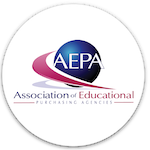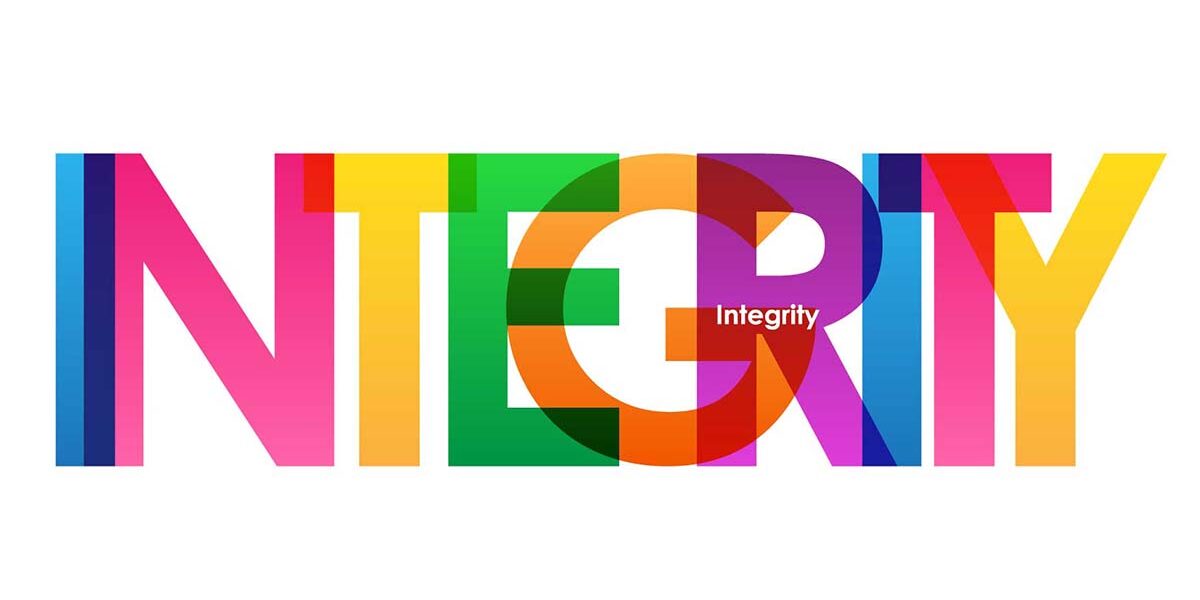Buying agencies demanding high standards of ethics from their purchasing cooperatives need not look further than AEPA.
By Ted Witt, AEPA Board Member
School district purchasing agents — and every person in the chain of acquisition for supplies, equipment, and services — work within the public’s trust. These employees must obey laws and regulations. However, they must also meet higher ethical obligations for a standard of fairness that earns the confidence of their constituents.
The Association of Educational Purchasing Agencies, or AEPA, easily meets the obligations set out in the laws of the 29 states that make up its membership. But AEPA goes further. Its business practices employ bylaws, procedures, and techniques that make AEPA-recommended contracts sterling instruments for safe public procurement.
An AEPA-recommended purchasing contract enables a local school district to buy immediately at a competitive price because AEPA members have already solicited, evaluated, and locally awarded bids based on a legal and ethical foundation. In short, an AEPA-recommended contract is a prized master contract for public agencies intent on guarding their own reputations.
Consider these seven differences that distinguish AEPA from other purchasing cooperatives.
1. A Separate Conflict of Interest Declaration
In addition to whatever their own state requires, AEPA board members — two from each participating state — must make an annual declaration that they have no conflicts of interest. This signed declaration ensures that a person overseeing a bid process or voting on a recommendation is not financially connected to a vendor participating in the AEPA contracting process.
If an AEPA board member or a close family member has something to gain from a particular supplier — whether stock, ownership, or employment — that is a conflict of interest that will not happen with AEPA contracts. Thanks to a separate AEPA-specific declaration, they have no potential for shady gains.
2. Checks and Balances
At AEPA, everyone is looking over each other’s shoulders. It is an organization of 29 state-level purchasing cooperatives that have joined together to work as an umbrella purchasing cooperative. It is committee-driven, so for any potential request for bids, or RFBs, all solicitations, evaluations, and recommendations will go through at least three review cycles thanks to a commodity Oversight Committee, a Bid Management Committee, and 58 members of the Board of Directors.
The hundreds of years of collective purchasing experience and the eyes of scores of studied purchasing professionals ensure that AEPA fosters fairness, independence, objective evaluation, and competition.
3. Outside Eyes
All AEPA Bid Oversight Committees and its Bid Management Committee have access to outside help to develop specifications and terms and conditions. Whether from a specifications writer or a professional contract writer, this independent help ensures that specifications and terms and conditions are not so narrowly written that they restrict competition. Plus, this extra help can remove biases against age, gender, and ethnicity.
4. Competition
A larger pool of qualified bidders means greater access to the lowest possible prices while also preventing favoritism. AEPA makes every effort to enlarge the potential universe of supply so that more bidders can respond to AEPA-led solicitations. The knowledge and networks of 58 voting board members help to widen that pool. An AEPA-initiated RFB is advertised in 29 newspapers across the U.S., not just one. More bidders mean more competition, less chance of preferential treatment, and more confidence in the bid process.
5. Transparency
Visibility into the bid process means that AEPA members are accountable for their work, inspiring confidence in all local contract awards. This transparency starts with public meetings and continues with the wide distribution of RFBs, open and recorded pre-bid calls, a public bid opening and reading of offers received, and public votes on recommendations. After an award, members also make contract terms and conditions and bid documents available for districts or public agencies wanting to use one of the AEPA-recommended contracts awarded locally in their state.
6. Local Awards
Even though AEPA members band together to solicit bids, any eventual contracts awarded are made locally under the authority of a public agency in a single state apart from AEPA. Therefore, an AEPA solicitation for one commodity may result in 29 separate state-level contracts. This state-level award process means no state-specific legal requirements are overlooked, which would be an ethical lapse in responsibility. Each contract ends up tailored precisely for a local school district or public agency that needs the protection of a bid and competitive prices in its jurisdiction.
7. Post-Award Management
If no one is looking, it doesn’t matter how good a contract’s terms and conditions are. A winning bidder could skirt the rules, ship inferior products, or otherwise compromise the integrity of the agreement. Thanks to AEPA’s Oversight Committees, awarded vendors must submit reports, be subject to satisfaction surveys, undergo annual reviews, and receive yearly confidence votes to earn recommendations for contract extensions. Thanks to these processes, AEPA expands the obligation for fair and ethical procurement beyond its internal operation to each vendor, their sales visits, and their transactions.
It would be impossible for law, policy, or regulation to envision every circumstance that could compromise a bid process or sales transaction. That is why buying agencies demand an additional high standard of ethics from their purchasing cooperatives. They want a co-op that knows the law’s intent and builds best practices around a principled foundation — that’s AEPA.
To see the contracts that have earned awards through AEPA’s reputable bidding process — everything from Athletic Equipment to Vehicles — visit https://aepacoop.org/purchasing-categories/.
 Ted Witt is the CalSave cooperative purchasing program administrator in California, where contracts are locally awarded by the Monterey County Office of Education. He is also a board member with the Association of Educational Purchasing Agencies. He currently sits as oversight chair for contracts related to technology and also landscaping equipment and supplies.
Ted Witt is the CalSave cooperative purchasing program administrator in California, where contracts are locally awarded by the Monterey County Office of Education. He is also a board member with the Association of Educational Purchasing Agencies. He currently sits as oversight chair for contracts related to technology and also landscaping equipment and supplies.








